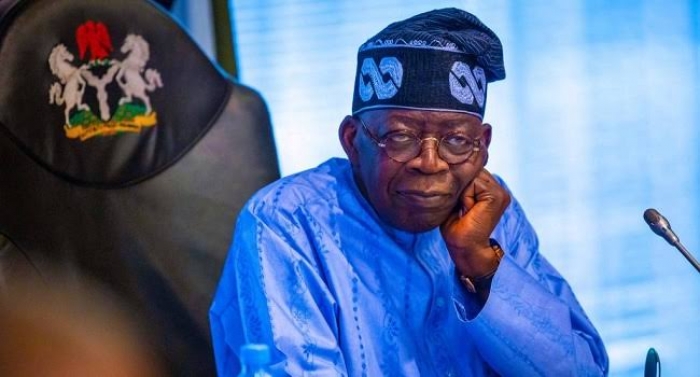A United States District Court has ordered major US law enforcement agencies, including the FBI and the Drug Enforcement Administration (DEA), to release documents relating to a decades-old investigation into Nigerian President Bola Tinubu.
Judge Beryl Howell of the District Court for the District of Columbia issued the ruling, stating that the agencies’ refusal to confirm or deny the existence of such records—known as a “Glomar response”—was “neither logical nor plausible,” particularly given the public disclosures already made over the years.
The ruling follows a lawsuit filed in June 2023 by American transparency advocate Aaron Greenspan under the Freedom of Information Act (FOIA). Greenspan had requested records from six federal agencies—the FBI, DEA, IRS, CIA, Executive Office for US Attorneys (EOUSA), and Department of State—relating to investigations allegedly linking Tinubu and three other individuals, including Abiodun Agbele, to a heroin trafficking ring that operated in Chicago in the early 1990s.
All the agencies initially denied the requests using Glomar responses, refusing to confirm or deny the existence of the records. Greenspan challenged those responses, and Judge Howell ultimately ruled that the FBI and DEA must disclose relevant documents, as their justification for secrecy no longer holds. The court, however, upheld the CIA’s Glomar response, citing insufficient evidence that it had officially acknowledged the existence of any related records.
According to court filings submitted by Greenspan, Tinubu was named in a 1993 civil forfeiture case filed by the US Department of Justice, which sought to confiscate $460,000 linked to suspected narcotics proceeds in Tinubu’s bank accounts. An affidavit from IRS Special Agent Kevin Moss detailed how Agbele, one of Tinubu’s associates, was arrested after selling heroin to an undercover agent, and how subsequent investigations linked financial transactions involving Tinubu to the broader drug ring probe.
Despite Tinubu’s lawyers attempting to intervene in the case, citing privacy concerns and the applicability of FOIA exemptions, the court ruled that public interest in the matter outweighed those concerns. Howell noted that both the FBI and DEA had already, in various ways, acknowledged Tinubu’s connection to past investigations, weakening the legal basis for continued secrecy.
However, the Nigerian presidency has dismissed the US court’s ruling as inconsequential. In a statement on Sunday, the Special Adviser to the President on Information and Strategy, Bayo Onanuga, said the materials referenced—particularly the affidavit by Agent Moss—have “been in the public space for more than 30 years” and do not amount to any new revelations or indictments against Tinubu.
“There is nothing new to be revealed,” Onanuga insisted, adding that the president’s lawyers are reviewing the ruling, but stressing that the documents do not implicate Tinubu in any criminal wrongdoing.
The court has ordered the involved US agencies, excluding the CIA, to file a joint report by May 2 detailing the status of any remaining issues related to the FOIA requests focused on Tinubu and Agbele. While the legal battle in the US continues, the Nigerian government appears intent on downplaying its significance, maintaining that the president has already been cleared of any wrongdoing in connection to the decades-old drug trafficking case.
